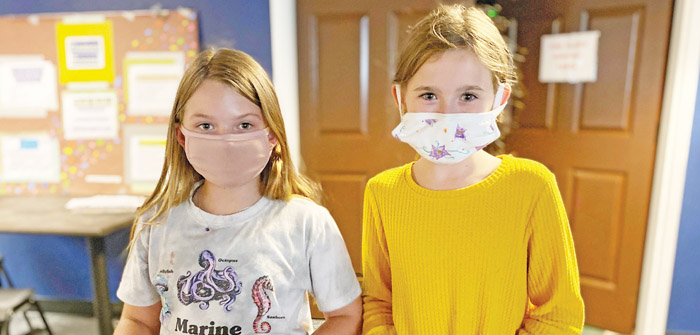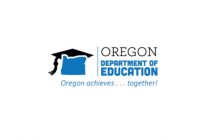(Boys & Girls Clubs of Bend received two large grants that have helped the organization stay afloat | Photo courtesy of Boys & Girls Clubs of Bend)
Perhaps the biggest news in the nonprofit sector this year is the radical change in fundraising methods the organizations now face, and, in most cases, the subsequent reduction in money coming in to support them. Without being able to hold large public gatherings, the agencies have had to rely upon online giving, which, most say, just isn’t the same as hosting live events.
At United Way of Central Oregon, Executive Director Ken Wilhelm said that to date, fundraising is on par with the past couple of years due to a couple of unsolicited good-sized grants they received. “But our fundraising efforts require more work now because we have to adapt to doing more online rather than in-person, which is usually better because relationships are a huge dynamic in fundraising,” he says.
“With other nonprofits, numerous organizations — especially those that relied upon in-person fundraising events such as dinners, auctions, socials and the like — have had to cancel or completely revise them to take place virtually… with limited success,” says Wilhelm. “The jury is out on how effective that is going to be; the question is how much less effective online fundraising will be.” He adds, “On the upside, there has been a significant increase in grant opportunities from both private foundations and government as they are taking proactive steps to address the increase in need. Many nonprofits were able to take advantage of the Payroll Protection Program or other types of employer assistance. I’ve seen a great collegiality amongst organizations; we are trying to work together to make the most of what’s available and not compete against each other.”
Eva Gill, marketing creative director at J Bar J Youth Services (jbarj.org), an umbrella organization that oversees a variety of programs to help meet the needs of youth in Central Oregon, says J Bar J has taken a big hit to its fundraising efforts this year. “In a typical year, we have three major fundraisers. Two of them, Bowl For Kids’ Sake in the spring and Comedy For Kids’ Sake in the fall, support Big Brothers Big Sisters. “We cancelled Bowl For Kids’ Sake completely, and are creating a virtual Comedy For Kids’ Sake event that will take place in November.” She adds, “Our largest fundraiser by far is the Oregon High Desert Classics (oregonhighdesertclassics.org). It’s a hunter-jumper show that attracts riders from all over the western U.S. and Canada. We ended up having to cancel that one as well.”
To address the cancellation, J Bar J created a virtual No-Show Horse Show, which Gill says was fun and brought a lot of the equestrian community together in spirit through a live-streamed event and a virtual grand prix. “In the live event, however, most of the revenue from the OHDC comes from the entry fees riders submit, not from donations during the show. The No-Show Horse Show did okay as a first-time fundraiser, but only brought in a fraction of the $250,000 the OHDC averages annually in revenue to support our programs.” She adds, “We have several sources of funding, as we employ about 150 people and work with thousands of youth each year in our seven programs. But the loss of OHDC will impact all our programs to some degree.”
Bridget Albert, community outreach coordinator of Big Brothers Big Sisters, said the pandemic has “wreaked havoc” on their budget due to the cancellation or shift to virtual community fundraisers. The cancellation of last May’s Bowl For Kids’ Sake fundraiser, which would have been the 21st annual, resulted in an approximate financial loss of $40,000, she says. “Furthermore, our signature fundraiser, the 23rd annual Comedy For Kids’ Sake to be held on November 12, has pivoted to a virtual event, which will dramatically affect its financial success. Due to the changes in our community fundraisers, BBBSCO is projected to lose over 40 percent of our budget. We have applied for several grants to help with some of this loss and are eagerly awaiting word, but there is no guarantee.”
Juliana Williams, executive director of the Boys & Girls Clubs, said that typically, they rely very heavily on events for fundraising, and additionally, they usually have a high percentage of families who pay a fee for spots in the program, which helps them to be able to offer scholarships. “But due to our reduced capacity, that money has also gone away,” she says. “Funding is now coming from other sources. We have been more active than usual in applying for grants, and have received several specific to COVID relief and recovery.” Williams said the Clubs received two large gifts that are getting them through for the time being. The Tykeson Charitable Trust, whose founders are motivated to support education and address low-income youth, approached Boys & Girls Clubs about how they could partner with them, Williams says. “They supported scholarships for our club, and supported us in opening up additional spots through another location next door. We have our existing two clubs, and now have an additional 40 kids at Bend Church in the same type of program, utilizing that facility. This really helps since we have to spread out the kids more.” Williams says the Tykeson gift was $300,000, which is “historic” for the organization, and a second gift that has helped tremendously was a $100,000 grant received through Better Together from CARES Act funding.
KIDS Center’s Executive Director, Gil Levy, says their annual fundraising cycle fell right at the time when the COVID shutdown began. “Our luncheon in early April had to be cancelled; so we just turned it into a giving event,” he said. “Cork & Barrell is our big summertime wine event that is heavily attended. What we did was transition it to an online program that included an auction. It was actually fairly successful; we’d never done anything like that before.” He adds, “We didn’t do as well as normal, but it was still fairly successful.”
At Bethlehem Inn, Wysling says, “We continue to be blessed with the generosity and support of our donors and the food bank to keep our pantry full. Thank you to Starbucks and Chic Filet, fueled by the E-food donation connection and our delivery angels Joe and Jackie.”
Partners in Care’s Chief Development Officer, Marlene Carlson, said that although their clinical staff members are accustomed to dealing with adversity and finding solutions to issues as they arise, it has been challenging to conduct a non-traditional capital campaign to construct their new 12-bed Hospice House. “Fundraising during a deep recession with high unemployment, volatile financial markets and a shift of private and foundation donations to political-, social justice- and pandemic-related causes created somewhat of an unfavorable climate for philanthropy,” she said. “Our ability to conduct events and in-person meetings has been hampered by COVID-19 restrictions.”
Younity’s Arlene Gibson agrees that funding for nonprofits has been negatively impacted over the past eight months. “We have community donors who have been financially impacted, even our wealthier donors. They are still giving, but smaller donations. Grants and corporations have refocused funding to prioritize critical care like food and healthcare, as it should be. But this has impacted our funding. There is simply less funding available for our services.” She adds, “Fortunately, we have proven programming; we have helped 10,000 youth and have had 2,700 adult volunteers. This helps us find support avenues for funding; people remember this. We have changed our fundraising focus to online. You can’t beat sitting face-to-face with a funder, but this is where we are right now. We have missions to support, and we are doing everything we can to support them.”
unitedwaycentraloregon.org • jbarj.org • bbbsco.org • bgcbend.org • kidscenter.org • bethleheminn.org • partnersbend.org • younityus.org





